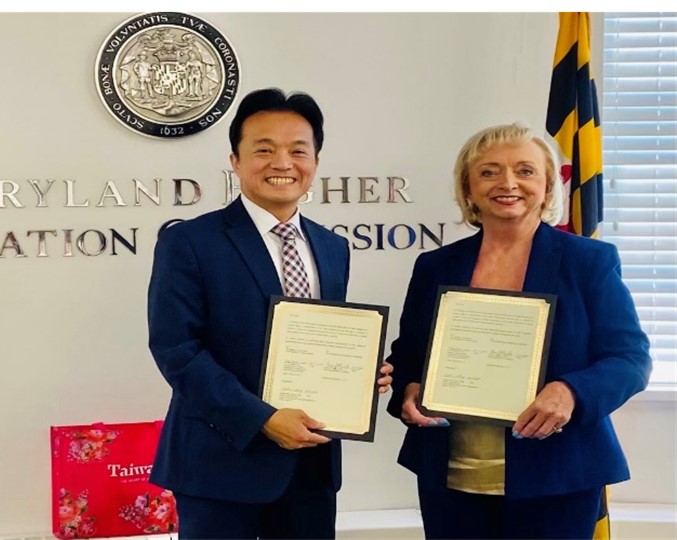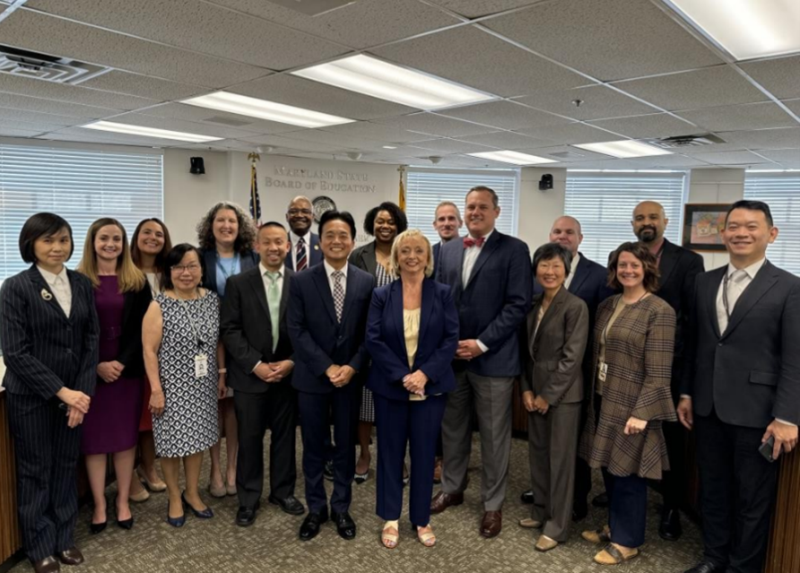Taiwan and Maryland Happily Renew MOU on Education Collaboration

In 2019, Taiwan’s Ministry of Education (MOE) and Maryland State Department of Education (MSDE) signed a memorandum of understanding (MOU) on education cooperation for a period of five years. The main areas of collaboration included supporting the twinning of bilateral K-12 schools, language-learning and culture related student exchanges, and recruiting qualified teachers from Taiwan to teach Mandarin Chinese in K-12 schools in Maryland.
The MOE sponsors Mandarin teachers from Taiwan to teach Mandarin immersion courses in local schools in Maryland, and provides teaching resources, and Maryland schools are being encouraged to conduct Taiwan’s Children’s Chinese Competency Certification tests as a way to help both teachers and students better evaluate students’ learning. In the last two years, for example, 155 students in public schools in Prince George's County have sat for these tests.
A ceremony to complete the signing of a renewal of this MOU for a further five years was held on August 14. At the ceremony, Carey Wright, Superintendent of the MSDE, signed the two copies of the MOU which had already been signed by Dr. Liao Kao-Hsien 廖高賢, acting Director General of the MOE Department of International and Cross-strait Education and brought to the US. The ceremony was attended by Robin Cheng 鄭榮俊, Deputy Chief of Mission at the Taipei Economic and Cultural Representative Office in the U.S., and local dignitaries.
Carey Wright spoke at the signing and said Maryland has 24 school districts with 1,400 primary and secondary schools, and more than 7,000 education personnel doing their utmost to foster the students’ foreign language skills and international outlook. and MSDE is really happy to be continuing its language education collaboration with Taiwan. She looks forward to expanding the areas and modes of collaboration. Robin Cheng welcomed the renewal of this MOU and looks forward to seeing students and teachers in schools in Taiwan and in Maryland having more opportunities for a wider range of educational interactions, and language-learning and cultural exchanges.
These ongoing educational interactions are also in keeping with the U.S.–Taiwan Education Initiative which Taiwan and the United States signed in December 2020. Its aim is “expanding access to Chinese and English language instruction, while safeguarding academic and intellectual freedom” and strengthening bilateral cooperation in international education.


